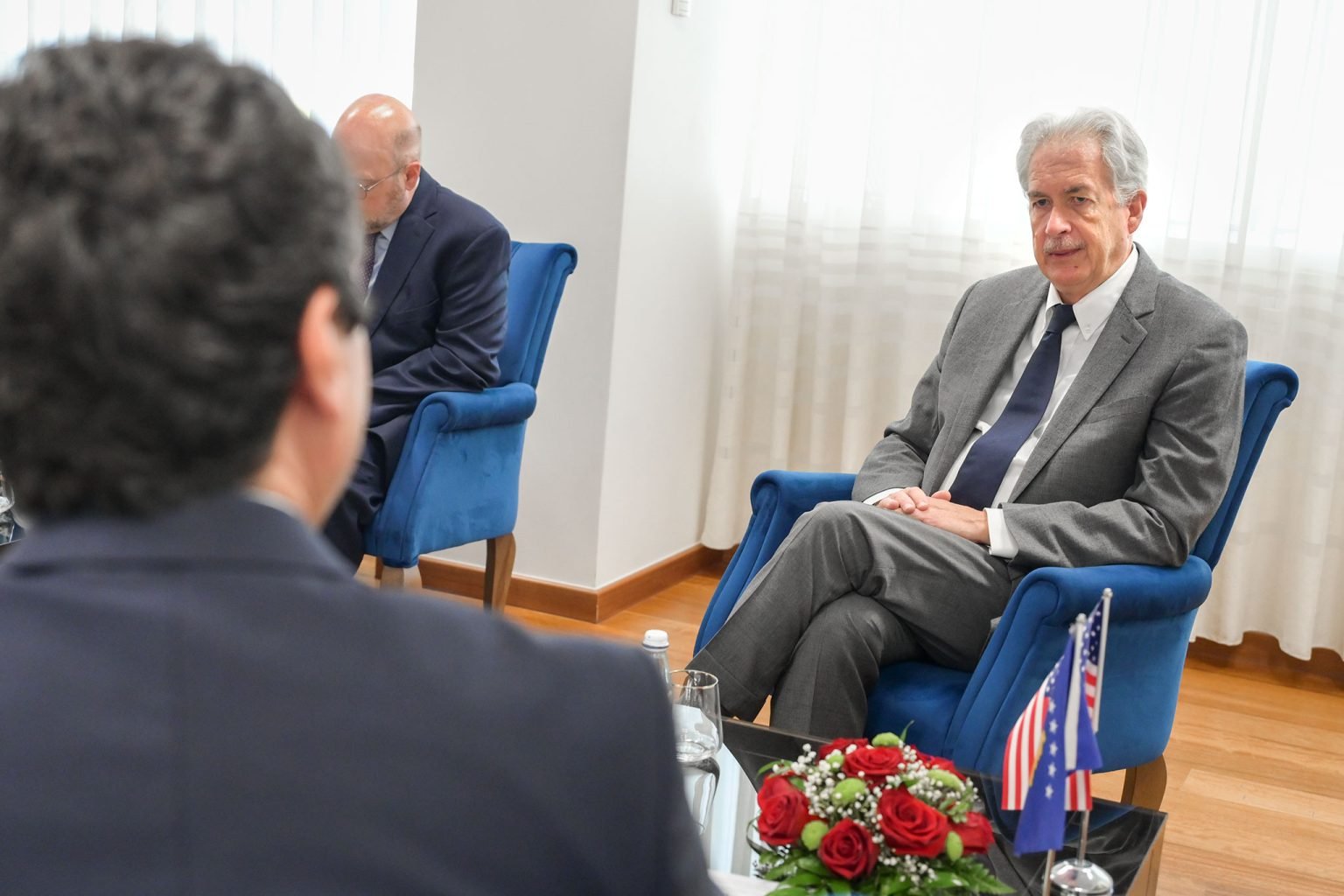Author: Arben Fetoshi
The head of the largest intelligence agency in the world visits three countries of the Western Balkans without warning, for a radical operation after the ‘metastasis’ of the Russian cancer that threatens European peace. In the most critical phase of the conflict in Ukraine and the Middle East, meanwhile US is approaching the presidential elections of November the 5th, the head of the CIA “burned” Putin’s cards for a new front in the Western Balkans. The visit of William Burns to Sarajevo, Belgrade and Pristina has a special geopolitical significance with a double dimension: first, as a clearer message to Russia that the Western Balkans is an area of American strategic interest, and second, as the most brutal warning about Vuçiç’s dangerous game in Kosovo and Bosnia.
The geopolitical dimension
The Balkans is of great strategic importance due to the geopolitical position, as a key region for control over the Mediterranean and the Middle East, via the Adriatic, Ionian and Aegean (Robert D. Kaplan, Balkan Ghosts: A Journey Through History, 1993), while in current circumstances, also as a front line against Russian attempts to influence and destabilize Europe. The Dayton Agreement (1995) for peace in Bosnia-Herzegovina and the Comprehensive Proposal for Kosovo (2007) are American Architecture frameworks for this part of the Balkans, the undermining of which would be in Russia’s direct interest. Russia’s destabilizing efforts towards the European Union and NATO are more concentrated in the Western Balkans, due to its ties with Serbia and Bosnia. “By positioning itself as a stable partner of Serbia and Bosnia, Russia may have unhindered access to conduct divisive operations against NATO,” McManamon warned in 2021, in an article on US foreign policy and strategy in the Balkans (https://smallwarsjournal.com/jrnl/art/us-strategy-and-foreign-policy-throughout-balkans). The deepening of these ties in recent years, including military cooperation, as well as the so-called Russian-Serbian Humanitarian Center in Nis, which according to military analysts is an “espionage center against American interests in the Balkans” (Voice of America, June 15, 2017), has refrained the region’s Euro-integration agenda, creating suitable terrain for Russian objectives. For this reason, the USA is currently indispensable in the Western Balkans, assess the researchers of the Transatlantic Security Program, Taylor and Lokker (https://www.euractiv.com/section/enlargement-neighbourhood/opinion/the-us-is-indispensable-in-the-western-balkans-for-now/). The open war in Ukraine, after the one in Georgia and the recognition of Abkhazia and South Ossetia, as well as the recognition of Crimea and the regions of Donetsk and Luhansk, combined with the hybrid war in the Western Balkans, consist in weakening the West by obstructing the Euro-Atlantic agenda, in order to achieve the status of a great power in the international arena, which is Putin’s main aspiration. However, since “international politics is based on national interest, which, in turn, is defined according to power” (Morgenthau, Politics Among Nations, 1960), the recent history of the Balkans makes it to be the national interest of the States of United States of America, for which the head of the CIA had “two chats” with Putin’s proxies in Sarajevo and Belgrade.
Operational dimension
By using Serbia and its interests in Bosnia and Kosovo, Russia has succeeded to incite tensions and to provoke destabilization through Dodik, Radojçiç and the criminal structures supported by Vuçiç. A strategy that would be followed by an open conflict with the potential for expansion, would lead to the collapse of the Western architecture for peace and security in the region, creating opportunities for a strategic position of Russia vis-à-vis Europe and NATO. Dodik’s actions towards the division of the Serbian Republic (Republika Srpska) would undermine the Dayton Agreement, while with Radojçiç, Vuçiç tried to annex the north of Kosovo to ruin the Ahtisaari’s project. Both lines were in function of the reopening of the armed conflict in the Balkans, on the one hand, designed for the purposes of the Serbian World (Greater Serbia) and on the other hand, for the purposes of the Russian World, distracting the capacities of the West from the war in Ukraine and Middle East. Based on public reports of various organizations and groups (Annual Threat Assessment of the US Intelligence Community, February 2024, https://www.intelligence.senate.gov/sites/default/files/hearings/unclassified_2024_ata_report_0.pdf) that have raised the alarm about the risk of inter-ethnic violence in the Balkans, and considering that the stability of the region today is a condition sine qua non for American interests, the visit of Ambassador Burns in Sarajevo, Belgrade and Pristina appears to be dictated by sensitive information about the Russian game. When diplomacy doesn’t work with early warning, intelligence remains the last option of brutal notice and warning. This was confirmed by Milorad Dodik’s reaction just one day after the visit of William Burns, when he declared that “separation has never been the policy of the Serbian Republic (Republika Srpska)” (Radio Free Europe, August 21, 2024). The effects of the ‘burning’ visit have not yet emerged from Belgrade, but the whole world knows that Vuçiç is protecting Radojçiç, that he has brought the army close to the border with Kosovo and that he is inciting tensions with the propaganda amplified by his media such as “Kosovo Online” falsely pretending that Serbs in the North are discriminated. Meanwhile, in Pristina, Ambassador Burns closed the regional visit by giving importance to KIA as a vital institution against hybrid activities and giving clear messages to political leaders about security challenges. If we refer to the concerns expressed by Ambassador Hovenier about relations with the government, they should also have been part of the ‘reprimanding’ message to Prime Minister Kurti, but with intentions of coordination for regional security and stability. Sometimes politics does not know exactly what is “happening behind closed doors”, that’s why in Pristina, the head of the CIA has come for “reprimand, information and coordination”.

